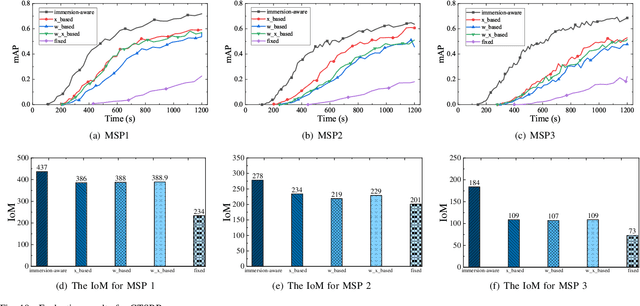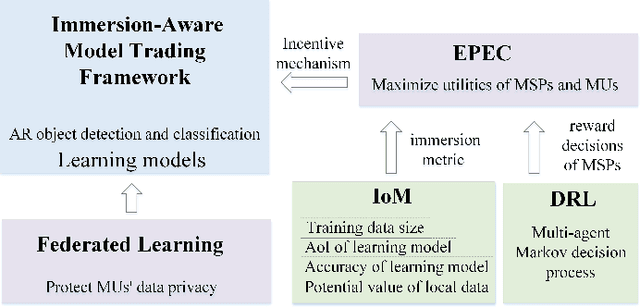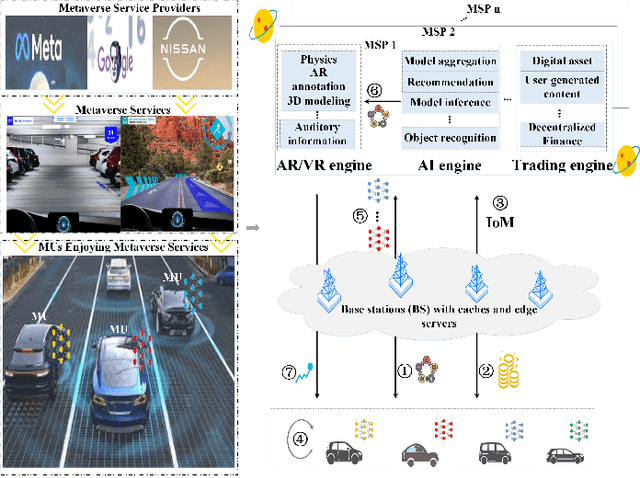MetaTrading: An Immersion-Aware Model Trading Framework for Vehicular Metaverse Services
Paper and Code
Oct 25, 2024



Updates of extensive Internet of Things (IoT) data are critical to the immersion of vehicular metaverse services. However, providing high-quality and sustainable data in unstable and resource-constrained vehicular networks remains a significant challenge. To address this problem, we put forth a novel immersion-aware model trading framework that incentivizes metaverse users (MUs) to contribute learning models trained by their latest local data for augmented reality (AR) services in the vehicular metaverse, while preserving their privacy through federated learning. To comprehensively evaluate the contribution of locally trained learning models provided by MUs to AR services, we design a new immersion metric that captures service immersion by considering the freshness and accuracy of learning models, as well as the amount and potential value of raw data used for training. We model the trading interactions between metaverse service providers (MSPs) and MUs as an equilibrium problem with equilibrium constraints (EPEC) to analyze and balance their costs and gains. Moreover, considering dynamic network conditions and privacy concerns, we formulate the reward decisions of MSPs as a multi-agent Markov decision process. Then, a fully distributed dynamic reward method based on deep reinforcement learning is presented, which operates without any private information about MUs and other MSPs. Experimental results demonstrate that the proposed framework can effectively provide higher-value models for object detection and classification in AR services on real AR-related vehicle datasets compared to benchmark schemes.
 Add to Chrome
Add to Chrome Add to Firefox
Add to Firefox Add to Edge
Add to Edge